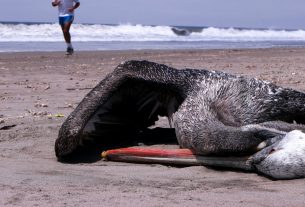For Black History Month, the British Ecological Society (BES) journals are celebrating the work of Black ecologists from around the world and sharing their stories. The theme for UK Black History Month this year is Time for Change: Action Not Words. Mthokozisi Moyo – at the University of Witwatersrand, South Africa – shares his story below.
How did you get into ecology?
My name is Mthokozisi Moyo and my main research interests are African Ecosystems, Seasonality, and Functional Traits.
I have always liked science since I was young, but I didn’t know much about ecology. When I got to university, initially I wanted to study Chemistry. I chose Ecology as my second major because I did not want to do any of the other subjects. During my second year, we went on a field trip to Pullen Farm in Mpumalanga, where we collected plants and insects and this sparked my interest in ecology. I was also struggling with my Chemistry courses and I was doing well in my ecology courses so that is how I also ended up choosing ecology.
During my Honours year, I worked with Prof Bob Scholes who introduced me to the field of climate change and systems ecology. He introduced me to many other scientists that I have continued to work with to this day. It was a chance meeting that changed my life forever.
My Honours project focused on the long-term climate analysis for Volksrust which is a town in Mpumalanga. We found that temperature has increased and rainfall has decreased in the past 100 years. That experience inspired me to do pursue a Masters degree where I expanded on my Honours work focusing on the phenology of the Enkangala Grasslands, how the growing season changes with changes in the climate.
I have also worked as a science engagement officer at the South African Environmental Observation Network (SAEON) where we were promoting environmental science to high school learners as well as the broader society.
What are you researching/working on right now?
My research focuses on several aspects of seasonality:
1. Functional traits and adaptations associated with rainfall seasonality in Africa. Large parts of Africa experience highly seasonal rainfall. Organisms living in these environments need adaptations that enable them to avoid or tolerate extended periods of water stress.
2. Ecological and climatological approaches to defining rainfall seasonality. How is seasonality measured? Which indices are used to measure seasonality?
3. Rainfall seasonality as a driver of Miombo floristics. Rainfall seasonality drives ecosystem dynamics in Africa and it is a significant factor affecting the distribution of plants and animals. We are looking at how seasonality affects community composition in the Miombo woodlands.
4. Spatial and temporal associations between rainfall seasonality and herbivore diet in Africa – what herbivore traits are associated with surviving long dry seasons? Dry seasons can represent significant nutritional bottlenecks for grazers in particular and might have driven the evolution of species with a mixed feeding strategy or species that migrate.

The thing I enjoy most about my work is that it enables me to contribute to our understanding of African ecosystems. I am also learning more about seasonality which is not as well studied in African ecosystems. I also enjoy working with many different collaborators from all over the world, as well as working with very experienced ecologists. My work is enjoyable because I get to travel to places that I would never be able to travel to outside of an ecological remit. I also enjoy being outdoors rather than being in an office or lab all the time. I also get to learn many different skills such as statistics, remote sensing, and coding – just to name a few.
Currently, I am looking for job opportunities as I am completing my PhD in the next year. I am also looking for opportunities to collaborate on some of the work that I do.
Who are your role models—within ecology and beyond?
The ecological role model that comes to mind is Ndoni Mcunu – she was a leading climate change researcher and activist who was working on issues around food security in Africa, with a particular focus on Zambia. She was also the founder of Black Women in Science, an organisation that looks to promote science to women in Africa. She won numerous awards and was an authoritative voice for young people on climate issues. Sadly, she passed away earlier this year.
My other role models are my parents. They are teachers and they have taught me the values of education. They have also inspired me to continue studying. They both went back to school to complete degrees in other fields on top of the teaching qualifications that they already had.
An individual I would like to shout out is Nolwazi Mbongwa. Nolwazi works on the cultural value and sustainability of wildlife trade as well as the use of medicinal plants among traditional healers and Muthi traders in South Africa. She is a trained traditional healer, as well as a scientist.
Enjoyed the blogpost and want to reach out to Mthokozisi? Contact him via Twitter or email!

